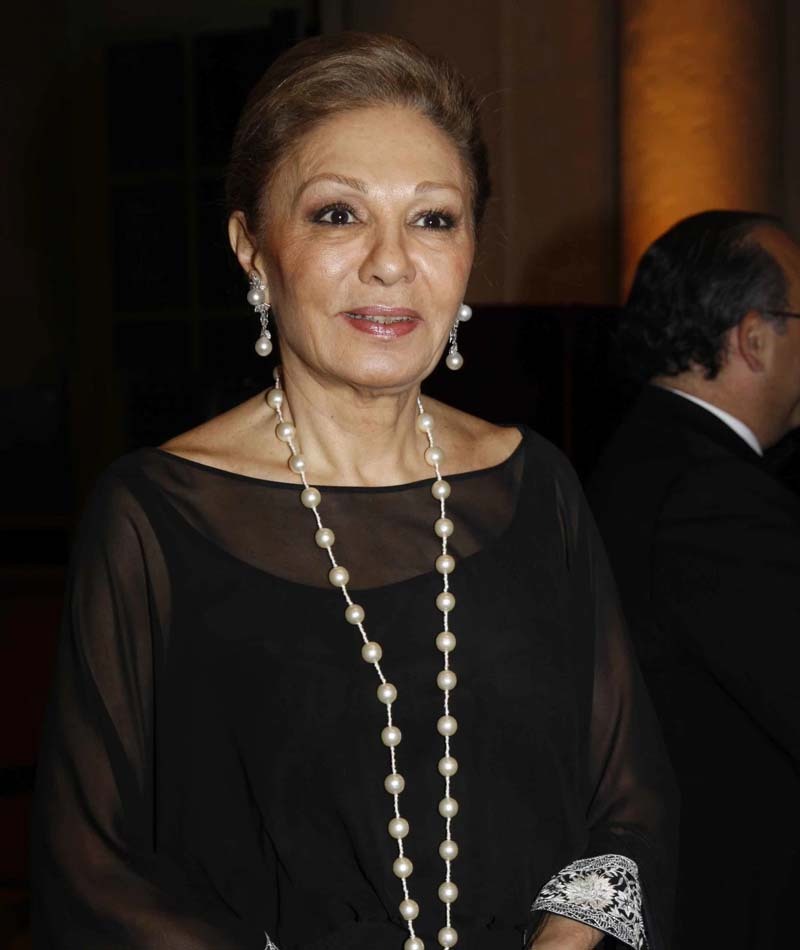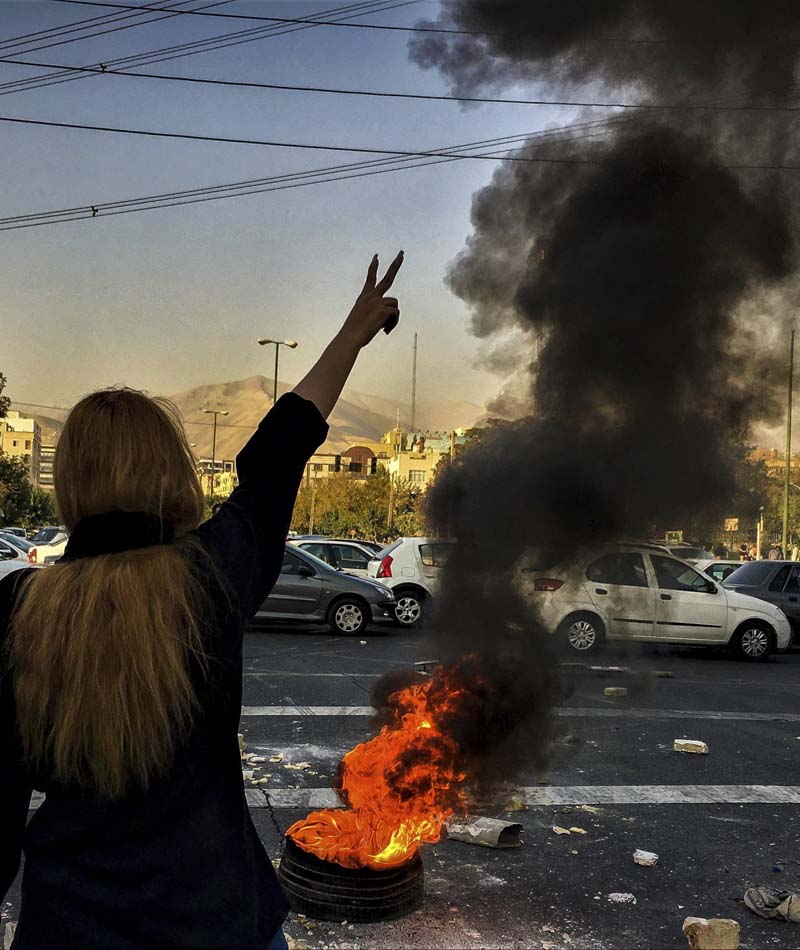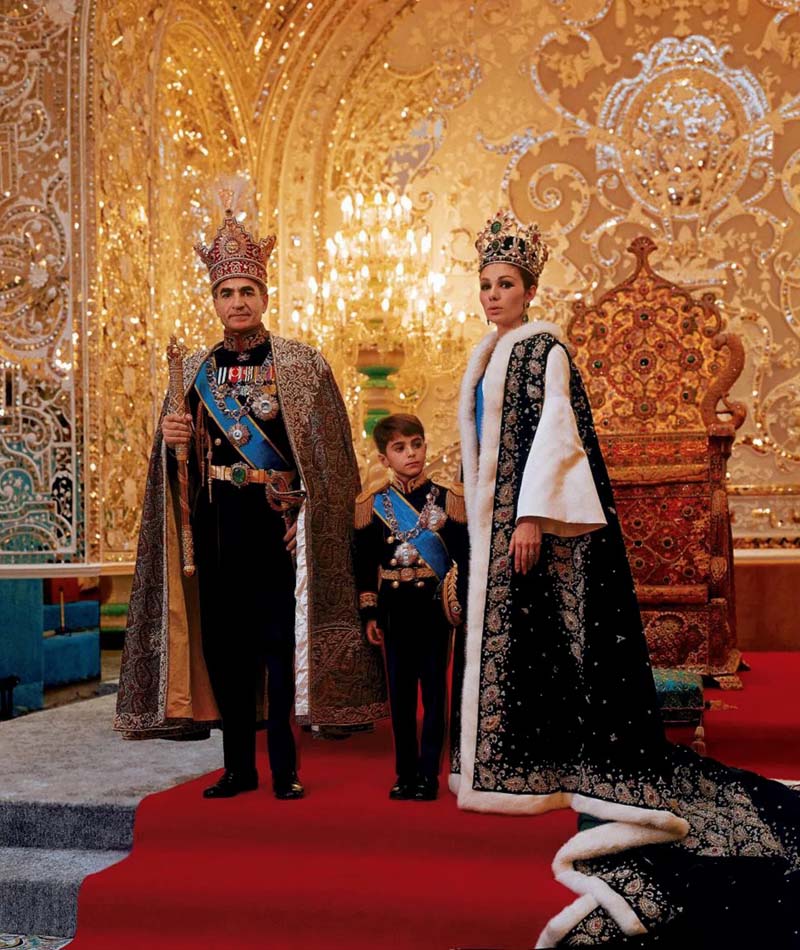 News Staff
News Staff![]() -
December 11, 2022 -
News -
Iran revolution
Empress Farah Diba
-
5.3K views -
0 Comments -
0 Likes -
0 Reviews
-
December 11, 2022 -
News -
Iran revolution
Empress Farah Diba
-
5.3K views -
0 Comments -
0 Likes -
0 Reviews

Farah Diba Pahlavi (84) was Queen from 1959 to 1967, then Empress in Iran until 1979. After the fall of the regime and the death of her husband, Shah Reza Pahlavi (†1980), she now lives in exile in Paris and Washington
DLNews Staff:
She is still the "mother of the nation" for many Iranians. In a press interview, the former empress Farah Diba Pahlavi (84) speaks about the protests of the young, courageous generation that is fighting the Islamist regime after the death of Mahsa Amini († 22). For them, the fall of the current government is no longer utopian.
Your Majesty, have you thought about Iran today?
Farah Diba: Yes! I think about Iran all the time. I listen to the Persian news almost 24 hours a day. I receive calls and emails from Iranians from all over the world every day. Any direct contact with Iran is problematic. Many young people want to talk to me. They leave their phone number, and I tell them I will call them under the name "So and so." In the conversations, I ask them what they are up to and encourage them in good things."
What do you think of the current revolution?
Diba: "What has happened in Iran in the last few months is unbelievable. It is the first time in history that this quality has been demonstrated. And brave women started it - young women, girls! Now there are protest marches for the liberation of Iran all over the world: in America, Germany, Austria, France, and so on - everywhere! Hundreds of thousands of people are on the streets, women, children, men, students, workers, doctors, scientists, and artists. This global cohesion encourages the people and especially the women of Iran. Unfortunately, as you know, many of them are currently in prison. It is sad because many protesters are being killed, including very young people."
Nevertheless, the women oppose the regime and say: We've had enough. We don't want to wear a veil anymore and have equal rights.
Diba: "Girls, women have been suffering so much for many decades that they have started to revolt against what is happening to them: the forced marriage of very young girls, the obligation to veil, polygamy and indoctrination, etc. Through the internet, many young women experience what it used to be like in their home country for the first time. They questioned the negative propaganda made against the Shah's government. Many young people blame their parents for the regime, the brutality and oppression they are subjected to."

Protests have been raging in Iran for weeks (here in Tehran)
What has to happen for women to have equal rights again?
Diba: "What has to happen? The fall and end of this regime - to have a democracy so that people, male or female, of all religions and classes, can live in freedom in Iran. I always say: the light will conquer the darkness, and Iran will rise from its ashes."

The Shah with Farah Diba and son Reza (then 7) at the coronation ceremony in 1967
The call for your son, Reza Pahlavi (62), is also growing louder among the millions of Iranians in Europe and the USA. Do you think he is ready to return to his country?
Diba: "Do you know what he's been doing over the years? He tirelessly thought of his compatriots and supported many people. For decades he has been spreading encouraging messages for the liberation of Iran through books, news, and the internet."
Does he want power?
Diba: "What he really wants is for the people to decide which system is best for them. But if the Iranians want it, he's happy to offer advice on their decision-making process. He advocates democracy, human rights, and territorial integrity."
What is your advice?
Diba: "I say, 'Be yourself.' He was a great airline captain, so I say, 'Fly like a pilot over things.' So many expect him to liberate Iran. This high pressure has been on him for 40 years."
Be honest: can the women's revolution really bring down the regime?
Diba: "My continued hope has always been my strength. At the same time, it is terrible that people, teenagers, and so many children, are being killed in this uprising. Young people, 17-year-old girls, suddenly no longer come home to their mothers and fathers. I don't know how the militia was brainwashed. If I have the opportunity with this interview, I will send the message to the security people to the military personnel: Don't kill the demonstrators! They are your countrymen! Your children will have to live with these children in the future."
Many Iranians still refer to you as the "mother of the nation"...
Diba: "It touches my heart that they call me "mother" and as I say it now, I get goosebumps. It means more to me than my title or my crown.”
Do you sometimes travel through your country in your mind?
Diba: "If I close my eyes, I'm in the north near the Caspian Sea, where everything is overgrown with lush greenery. I will never forget the view from my window of Damavand, the impressive volcanic mountain.”
Do you sometimes pray?
Diba: “No, I don't pray and hardly ever cry. I believe in the power of people.”
FORMER IRAN EMPRESS FARAH DIBA
By News Staff![]() 0
0
0
765
3
0
0
0
765
3
3 photos

Desert Local News is an invitation-only, members-based publication built on fact-checked, non-biased journalism.
All articles are publicly visible and free to read, but participation is reserved for members—comments and discussion require an invitation to join.
We cover local, state, and world news with clarity and context, free from political agendas, outrage, or misinformation.